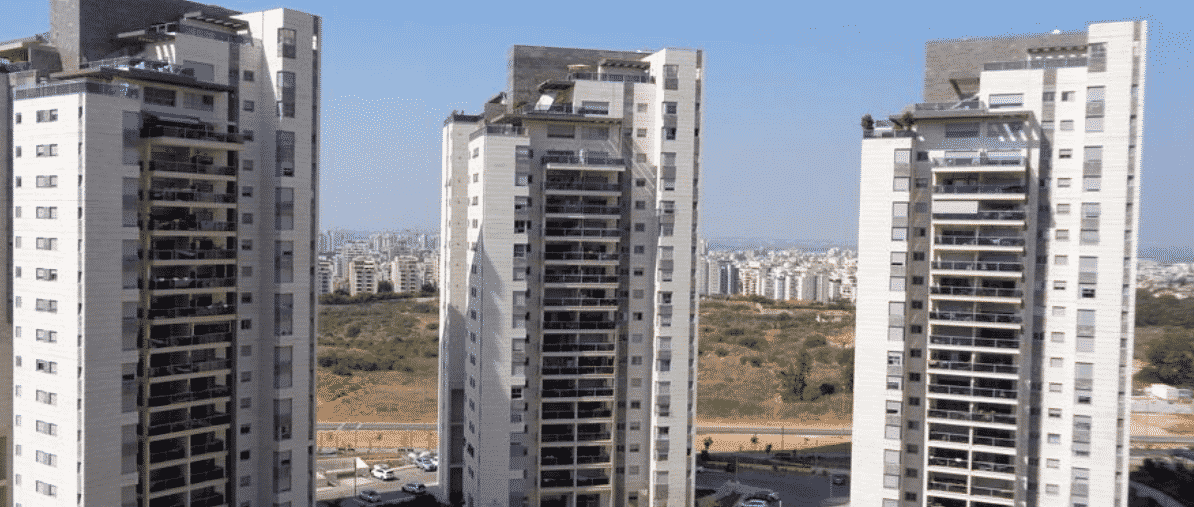You know which city you want to live in, but you need to decide whether to buy an apartment in the new neighborhood or one of the old neighborhoods? It would be best if you read the article in front of you.
Whether an apartment in a new neighborhood is better than an apartment in an old neighborhood or vice versa is a question that disturbs the rest of investors, young families, and anyone who wants to purchase a residential property. Each option has its advantages and disadvantages, and each can be more relevant to someone else. If so, how do we make an informed decision about where to buy an apartment? We will turn to the suitable old method and list the things in the “for/against” list. Are you ready?
A new neighborhood – in favor
It is not difficult to think of several good reasons why it is worthwhile to purchase an apartment in a new neighborhood because a new neighborhood means new construction in a design that suits the modern lifestyle, new infrastructures with more advanced technologies, sometimes also with green and environmental thinking and of course everything looks better. Do you know the beautiful architectural plans, saturated parks, and sparkling paths? This is how your neighborhood will look, too.
Another significant advantage is that the new neighborhood populated at once will probably have populations from a similar socio-economic and family situation to you, creating an excellent opportunity to establish a new community and enjoy a good neighborhood.
And, of course, let’s remember that those who buy apartments in the new neighborhood are expected to benefit from the increase in the value of the apartment after all the new residents move in and after the construction of the infrastructure ends. Therefore, it is also a profitable investment.
New neighborhood – against
Let’s say that an apartment in a new neighborhood is expected to increase in value with the completion of the infrastructure construction. We must remember that in the first years, we will have to deal with a lack of infrastructure, and until enough schools, kindergartens, housing complexes, and even shopping centers are built, we will have to migrate to distant neighborhoods. Sometimes, this situation may continue for a considerable number of years.
In various cases, buying an apartment in a new neighborhood also means living on a construction site and living alongside noise pollution, air pollution, and accessibility disturbances due to truck traffic and roadblocks. Also, many new neighborhoods today are characterized by high-rise construction, so many housing units are built in a small area, leading to high density and many traffic jams within the neighborhood during peak hours.
An old neighborhood – in favor
Let’s start with the obvious – an apartment in an old neighborhood will often cost less than an apartment building in a new neighborhood in the same city, so there is undoubtedly an economic advantage here. Of course, it should be noted that in recent years, many old neighborhoods have undergone TAMA and eviction processes, meaning that if we purchase an apartment in an old building that is destined to undergo such processes in the coming years, we will be able to make a very profitable investment and enjoy a significant profit in a few years.
Also, not only do the old neighborhoods offer us existing infrastructure in most cases, but when we choose to buy an apartment in an old neighborhood, it is much easier for us to understand the quality of the neighborhood. We can learn about the local population, the level of education, and its quality, and in short, we know precisely what we will get, thus making a more informed purchase. And if we say that many new neighborhoods are characterized by construction saturated with towers, we usually do not see high-rise construction in old neighborhoods. The residents enjoy a relatively low density.
An old neighborhood – against
Old neighborhoods-built decades ago are often neighborhoods where the planning differs from modern life. This is often reflected in the need for more parking spaces, as in the past, it was not acceptable for a family to own more than one vehicle, if at all. In these neighborhoods, the infrastructure will be old, the environment will sometimes be less well maintained, and the public buildings will often be in a somewhat neglected state.
Suppose you plan to vacate a building or TMA 38. Still, if the apartment you bought is not expected to go through such processes, and unless there are other significant changes in the real estate market, the value of your apartment will probably stay pretty much the same in the coming years.
So what to choose?
Ultimately, the question is, what are your expectations from the new apartment? Those who want to make a profitable investment should buy an apartment in a new neighborhood or an apartment in an old neighborhood that is near TAMA; those looking for high-rise living will find what they are looking for in the towers being built in the new neighborhoods, and those who prefer to save will probably have better chances to find a property that suits his needs in an old neighborhood. So what suits you best?










